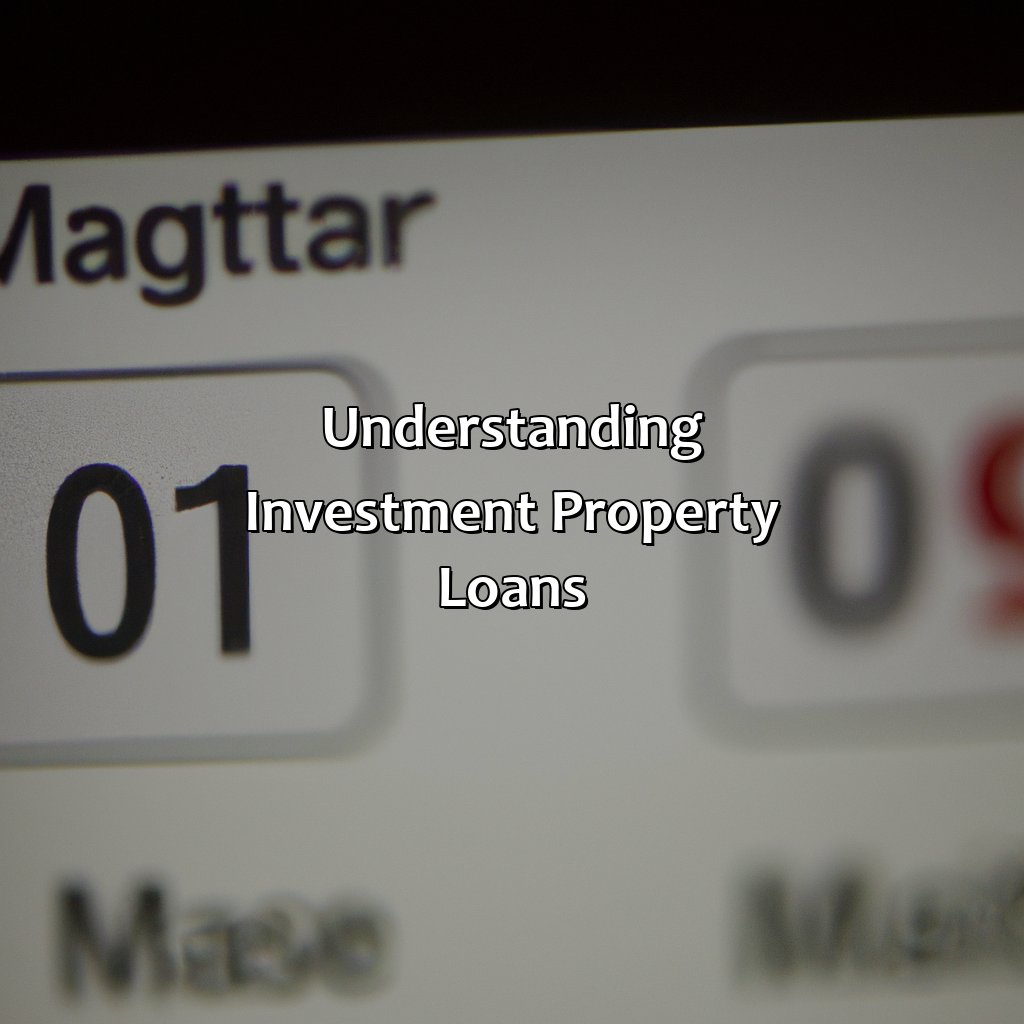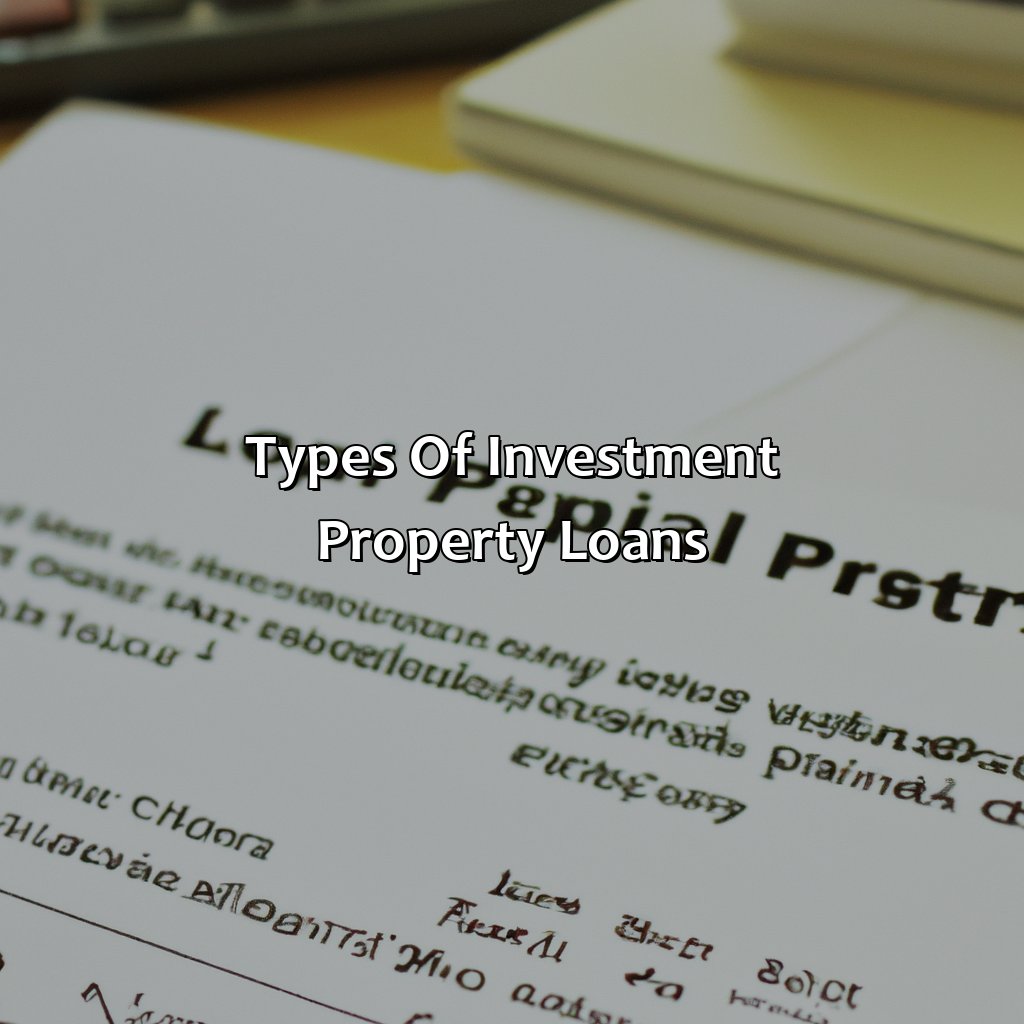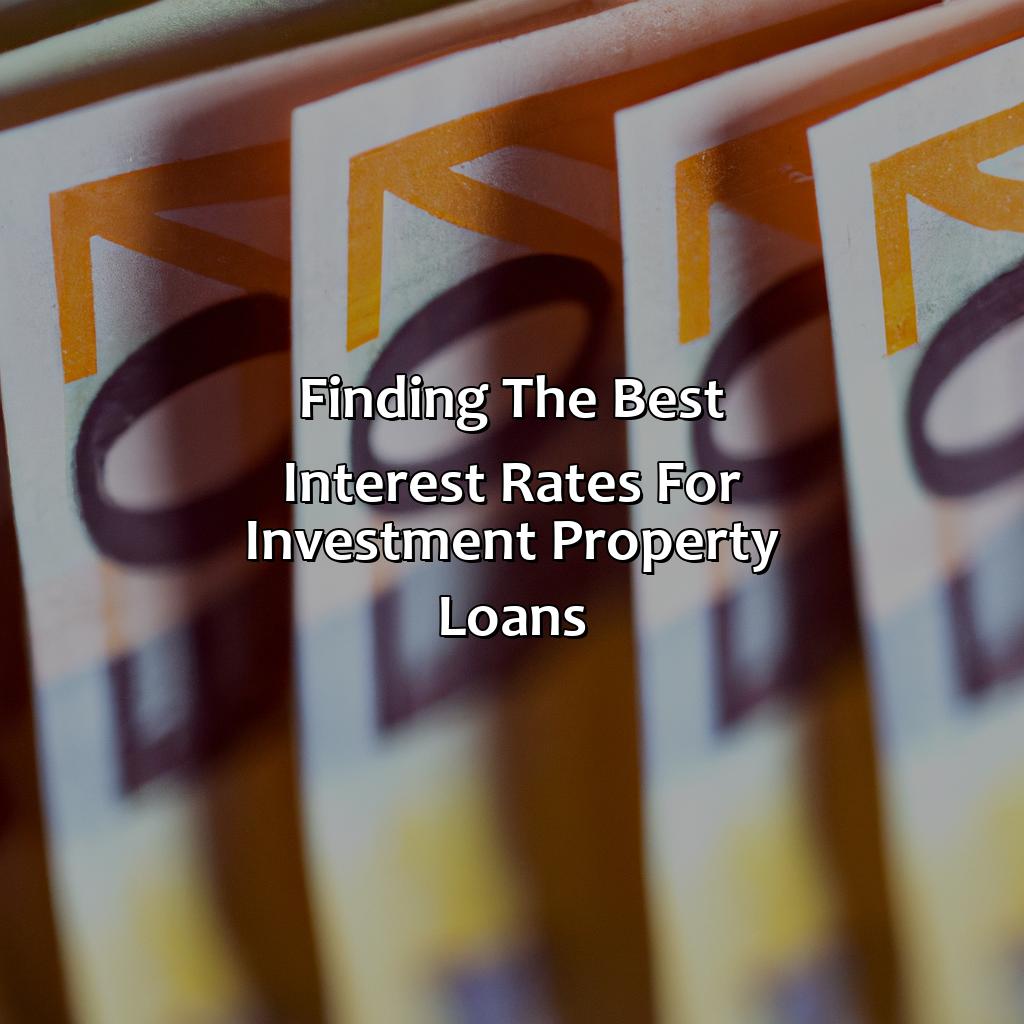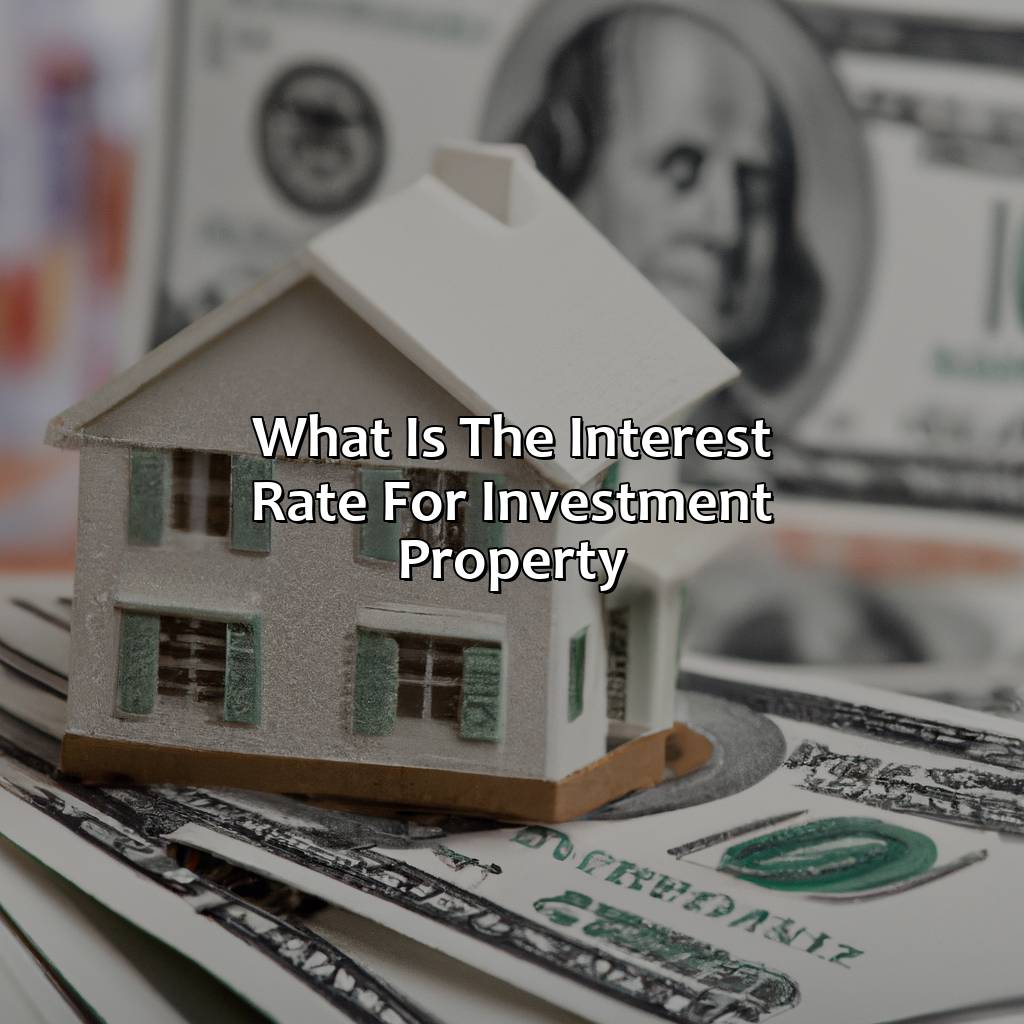What Is The Interest Rate For Investment Property?
Key Takeaway:
- Interest rates for investment property loans tend to be higher than those for primary residences: This is because lenders view investment properties as riskier investments, and therefore charge higher interest rates to compensate for that risk.
- Factors that affect interest rates for investment property loans include credit score, down payment amount, property location and type, and the lender’s policies and requirements. Borrowers should carefully research and compare lenders to find the best rates and terms for their investment property loans.
- The two main types of investment property loans are fixed-rate mortgages, which offer consistent interest rates and payments over the life of the loan, and adjustable-rate mortgages, which may offer lower initial interest rates but can change over time.
Are you interested in investing in real estate? Knowing the interest rate for investment property is key to making a good financial decision. You deserve to get the best rate possible, so let’s explore what you need to know.
Understanding investment property loans
Investment property loans are designed to help people purchase properties for investment purposes. These loans typically come with higher interest rates compared to traditional mortgages. Lenders consider various factors such as credit score, down payment, and property type when determining interest rates. It’s important to understand the different loan options available and their specific requirements.
When it comes to investment property loans, there are various options available such as fixed-rate, adjustable-rate, and interest-only loans. Fixed-rate loans provide a stable payment option, while adjustable-rate loans may offer lower initial payments. Interest-only loans allow borrowers to only pay the interest instead of principal, but may come with higher rates. Lenders also require a higher down payment for investment properties, typically 20-25%.
Additionally, lenders may consider the location, condition, and potential rental income of the property when determining the loan terms. It’s important to research the local market and ensure the property can generate enough income to cover the mortgage payments.
Pro Tip: Keep track of your expenses and income related to the investment property to accurately calculate your return on investment and make better financial decisions.

Image credits: retiregenz.com by Adam Washington
Types of investment property loans
Investment Property Financing: Understanding Your Options
Investing in property can be a lucrative move, but it requires financial planning. To make investment property financing easier, you need to know your options. Here’s what you need to know:
- Conventional loans: These are traditional loans, ones that are not backed by the government. They are available from banks and other financial institutions. They typically require a higher credit score and a larger down payment.
- FHA loans: These loans are backed by the Federal Housing Administration and are aimed at low- to moderate-income borrowers. They require a lower down payment and are more lenient with credit scores.
- VA loans: These are loans backed by the Department of Veterans Affairs and are only available to active-duty military personnel, veterans, and their families. They require no down payment and have no mortgage insurance.
- Hard money loans: These loans are provided by private lenders and are based on the value of the property, rather than the borrower’s creditworthiness. They typically have higher interest rates and shorter repayment periods.
When considering investment property loans, keep in mind the unique details of your situation, such as the property’s location, its market value, and your own financial circumstances. And remember, always consult a professional before making any major financial decisions.
Pro Tip: Research the different types of investment property loans thoroughly before making a decision. Consider factors such as interest rates, repayment terms, and eligibility requirements. This will help you make an informed decision and find the best loan for your needs.

Image credits: retiregenz.com by Adam Arnold
Finding the best interest rates for investment property loans
When investing in property, it is important to find the best interest rates for loans. The interest rates vary depending on the lender, type of loan, and the property’s location. To ensure the best rates, you must shop around and compare different lenders.
In addition to shopping around, there are other ways to secure good interest rates for investment property loans. For instance, you can increase your credit score, which ultimately shows lenders that you are a reliable borrower. You can also pay a higher down payment, which reduces the loan amount, thus, decreasing the interest rates.
It is noteworthy that in the past, interest rates for investment property loans were higher than those for personal homes. This is because lenders take on more risks with rental and investment properties. However, in recent times, interest rates for investment properties have become more competitive and are increasingly similar to those of personal homes.
A true history about interest rates for investment properties is that they have fluctuated over the years. There was a time when interest rates were as high as 10% to 18%, and even higher, especially in the 1980s. However, interest rates are currently low, hovering between 3% to 6%, thanks to several factors such as economic growth and the Federal Reserve’s monetary policy.

Image credits: retiregenz.com by Adam Duncun
Five Facts About Interest Rates for Investment Property:
- ✅ Interest rates for investment property are typically higher than rates for primary residences. (Source: Forbes)
- ✅ Investment property interest rates can vary depending on factors like credit score, loan-to-value ratio, and property type. (Source: Bankrate)
- ✅ Fixed-rate mortgages may have a higher interest rate than adjustable-rate mortgages for investment properties. (Source: The Balance)
- ✅ Lenders may require a larger down payment for investment properties, which can also affect the interest rate. (Source: NerdWallet)
- ✅ Shopping around and comparing interest rates from different lenders can help you find the best rate for your investment property. (Source: Investopedia)
FAQs about What Is The Interest Rate For Investment Property?
What is the interest rate for investment property?
The interest rate for investment property depends on various factors, such as creditworthiness, loan-to-value (LTV) ratio, property type, and loan term. Generally, the interest rate for investment properties is higher than owner-occupied properties.
How can I get a lower interest rate for investment property?
You can get a lower interest rate for investment property by improving your credit score, putting a larger down payment, choosing a shorter loan term, and working with a reputable lender who offers competitive interest rates.
Can I refinance my investment property to get a better interest rate?
Yes, you can refinance your investment property to get a better interest rate. Refinancing your investment property can lower your monthly payments, reduce your interest rate, extend your loan term, and even cash out some equity.
What is the average interest rate for investment property?
The average interest rate for investment property varies depending on the lender, property type, and other factors. As of 2021, the average interest rate for investment property ranges from 4.25% to 6.5%. However, your interest rate may be higher or lower depending on your specific circumstances, such as credit score and down payment.
Is it better to get a fixed-rate or adjustable-rate mortgage for my investment property?
Whether to choose a fixed-rate or adjustable-rate mortgage (ARM) for your investment property depends on various factors, such as your financial goals, risk tolerance, and current market conditions. Fixed-rate mortgages offer stable monthly payments and protection from interest rate hikes, while ARMs typically have lower initial rates but may increase over time.
What are the closing costs associated with investment property loans?
The closing costs associated with investment property loans vary depending on the lender and loan type. Generally, you can expect to pay for appraisal fees, title insurance, origination fees, underwriting fees, and other charges. The total closing costs for investment property loans can range from 2% to 5% of the loan amount.
